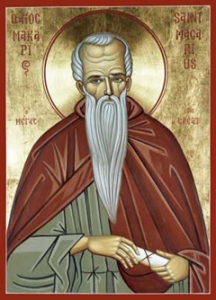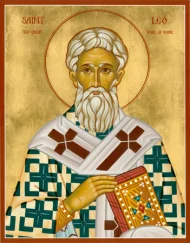 A man goes in to bend the knee, and his heart is filled with the divine influence,
A man goes in to bend the knee, and his heart is filled with the divine influence,
and his soul rejoices with the Lord, like bride with bridegroom, according to that word of the prophet Esaias which says
As the bridegroom rejoiceth over the bride, so shall the Lord rejoice over thee (Isaiah 62:5),
and it comes to pass that being all day engaged he gives himself to prayer for an hour,
and the inward man is rapt in prayer into the unfathomable deep of that other world in great sweetness, so that his whole mind is up aloft, rapt away thither, and estranged from things below.
For the time being forgetfulness comes into him with regard to the interests of the earthly mind, because his thoughts are filled and taken captive to divine and heavenly things,
–to things infinite and past comprehension, to wonderful things which no human lips can express, so that for that hour he prays and says, “Would God that my soul might pass along with my prayer!”
Question. Can anyone enter into these things at all times?
Answer. Grace is constantly present, and is rooted in us, and worked into us like leaven, from our earliest years, until the thing thus present becomes fixed in a man like a natural endowment, as if it were one substance with him.
But, for the man’s own good, it manages him in many different ways, after its own pleasure.
Sometimes the fire flames out and kindles more vehemently; at other times more gently and mildly.
The light that it gives kindles up at times and shines with unusual brightness; at others it abates and burns low.
The lamp is always burning and shining, but when it is specially trimmed, it kindles up with intoxication of the love of God; and then again by God’s dispensation it gives in, and though the light is always there, it is comparatively dull.
Macarius the Egyptian (c. 300-391) [attributed]: Spiritual Homily 8, 1-2 @ Pravoslavie.









Great post. Found your blog on /r/desertfathers.
Thank you! I’m looking forward to reading more of The True Pentecost.
[…] Continued from here…. […]